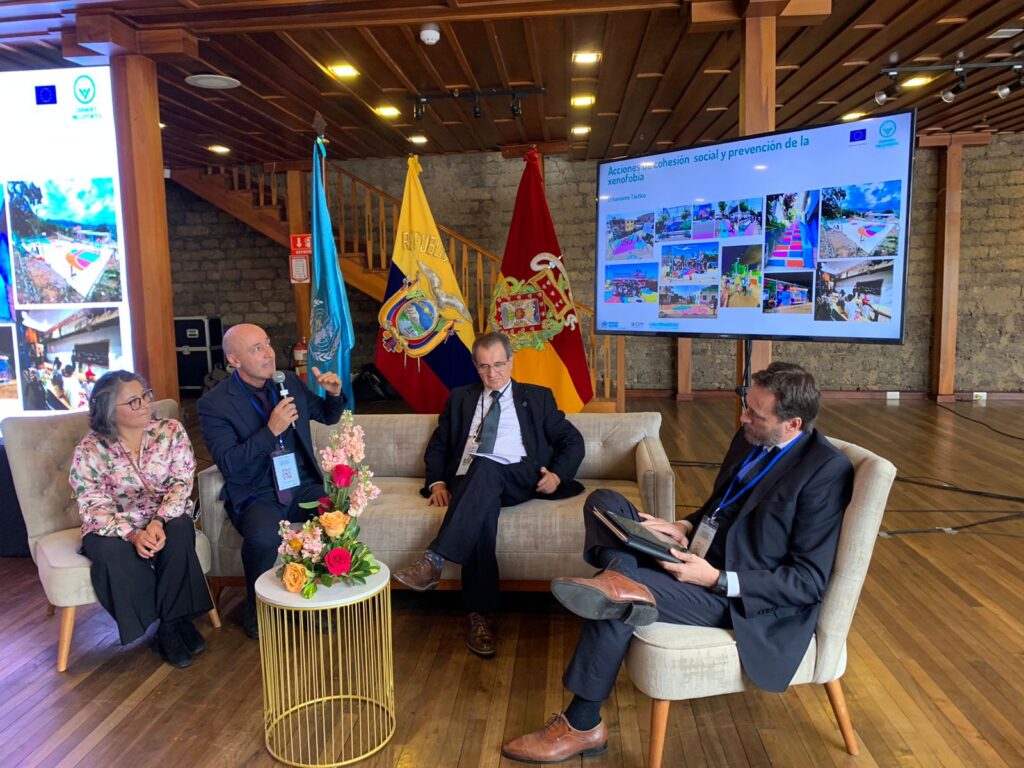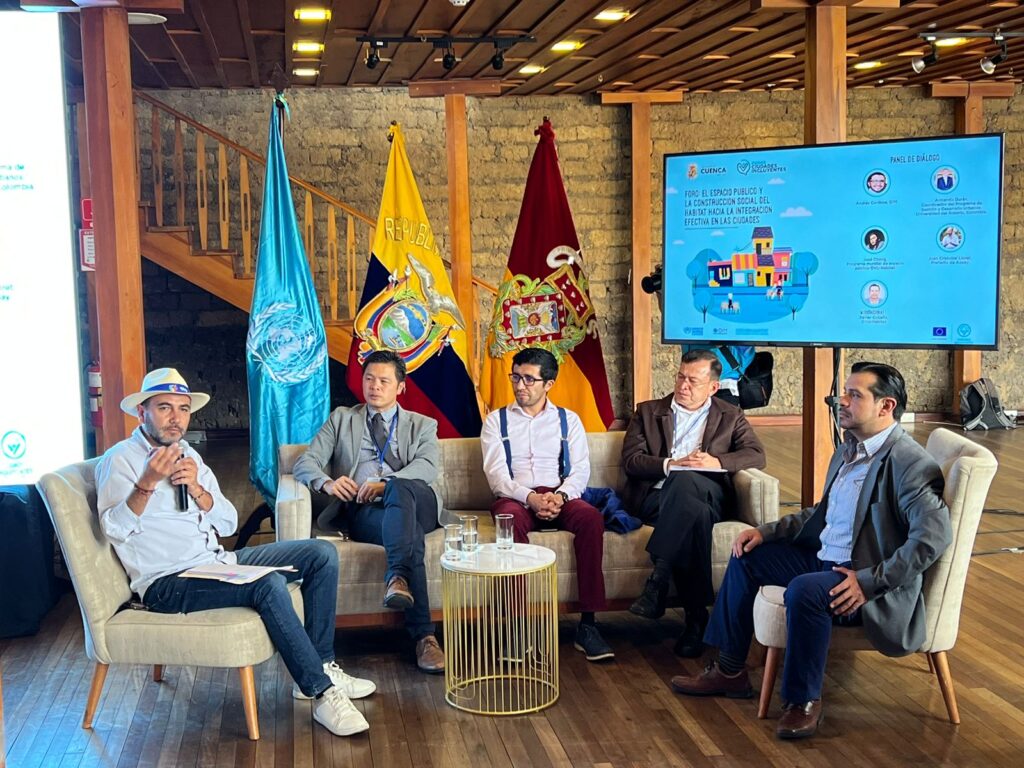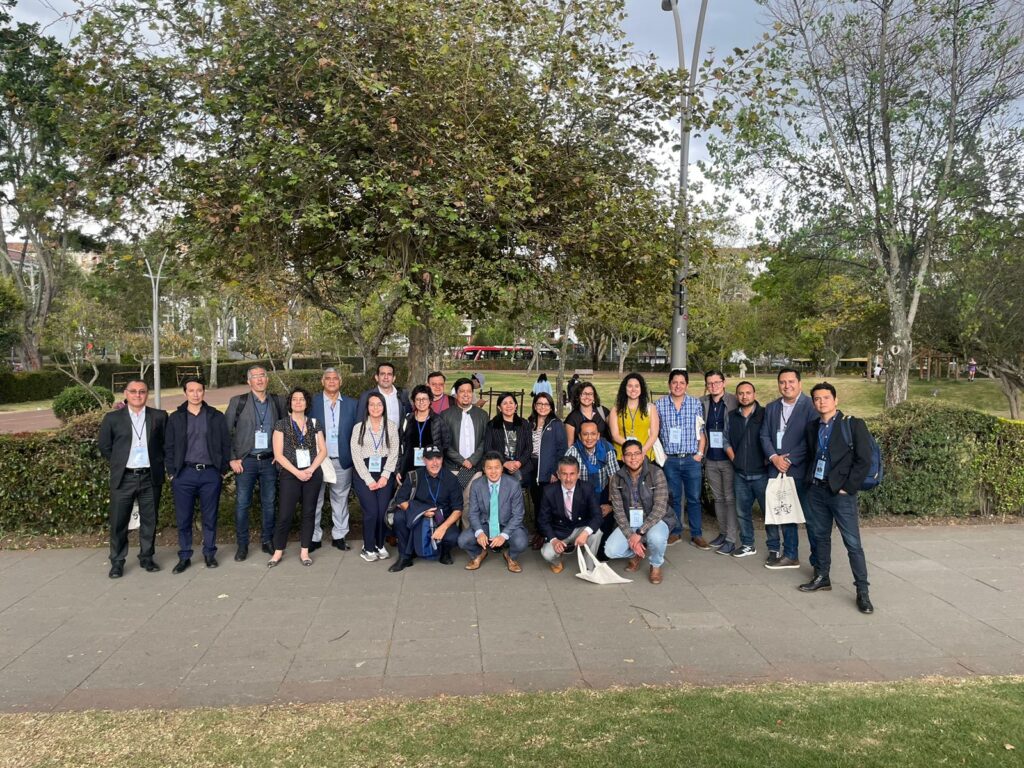
The Ecuadorian city of Cuenca hosted the forum “The Role of Public Space and the Social Construction of Habitat for Effective Integration in Inclusive Cities,” which took place on September 28 and 29, 2023, at the Plaza del Portal Artesanal, an important venue in the city. The event began with welcoming remarks by Lena Savelli, United Nations Resident Coordinator in Ecuador; Roi Chiti, Coordinator of UN-Habitat Hub for Andean Countries; Juan Cristobal Lloret, Prefect of Azuay; and Christian Zamora, Mayor of Cuenca.
The academic agenda kicked off with a presentation on how the initiative “Inclusive Cities, Communities of Solidarity” has positively influenced public spaces in 10 cities in Latin America and the Caribbean. This presentation was led by Monica Quintana and Roi Chiti from UN-Habitat Andean Countries, Jose Ivan Davalos from IOM Ecuador, and Federico Agusti from UNHCR Ecuador. Next, a panel on inclusive urban planning and its impact on the quality of public spaces was held.
Among the panelists, Javier Baquero, Director of the Caja de Vivienda Popular in Bogota, mentioned the aim to create a city of proximity, a 30-minute city, in the Colombian capital city. Pedro Carrasco, Program Manager of Fundacion Avina, shared that the “Women Builders Hand in Hand” program in Lima is a great example of inclusive and appropriate management of public spaces. Additionally, Camilla de Almeida, Coordinator of the Urban Connections Program at UN-Habitat Brazil, stated that local governments should promote collaboration between different cities so that, through the exchange of experiences, quality public spaces can be created. Then, the book “Assessment of Public Space in Ecuadorian Cities” was presented. In the afternoon, a training session on the use of digital forms and data collection was conducted at La Madre Park, followed by an evaluation activity of public spaces using the Kobo tool for data collection and information on open public spaces.
The first half of the second day of the public space forum in Cuenca revolved around discussions on economic opportunities, climate change, and building more resilient cities.


From the perspectives of academia, government entities, and international cooperation, a conversation was held in which some Latin American cities shared the approaches they are adopting for urban development, prioritizing sustainability and community inclusion. Cities such as Curridabat in Costa Rica, Barranquilla in Colombia, San Pedro Sula in Honduras, and Neuquen in Argentina, to name a few, are managing public space in a way that integrates population inclusion and elements to mitigate climate change, aiming to ensure the right to the city for everyone.
The event ended with a revitalization of public space in two parks in the city: San Blas and Victor J. Cuesta.